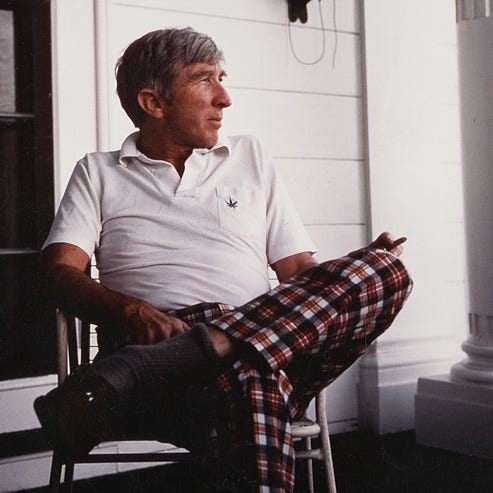The charge that golf is useless is not in fact an indictment but a badge of honor. Golf, like so many other games, is good for its own sake. Its doing needs no further justification and we should resist coy attempts at instrumentalizing the game for some further ends, whether they regard business, fitness or even romance.
To underscore the point, I’d like to call on a supporting witness, John Updike, the well-known literary sage of the fairway (and bunker). The great American author and golf devotee was once in the presence of a young woman who informed him that life was too short “for crossword puzzles and for golf.” His responsory ruminations are worth quoting at length:
The nature of humankind must be considered before we decide what life is too short for. Is it too short for sex, for instance, or is sex its business? Men and women need to play, and it is a misused life that has no play scheduled into it. Crossword puzzles, even, have a fit place in some psychological budgets. With them, as with golf, we set ourselves to solve a puzzle nature has not posed. Nothing in natural selection demands that we learn how to beat a small ball into a hole with a minimum number of strokes.
Updike sees clearly the lack of necessity of golf as something that attests to its worth, not as a detraction from it. This is not to say that it does not benefit us, though:
The great green spaces of a golf course remember the landscape in which the human animal found his soul. Certainly the site of our favorite fairway wandering toward the horizon is a balm to the eyes and a boon to the spirit. Our mazy progress through the eighteen is a trek such as prehistoric man could understand, and the fact that the trek is fatiguingly long constitutes part of its primitive rightness.
Further, “a more reasonable length—twelve holes, say—wouldn’t have the resonance, the religious sense of ordeal. It is of the essence that a game of golf can’t be quickly over and done with; it must be a journey.”
Updike ends his meditation thus:
As soon say life is too short for sleep as say it is too short for golf. As with dreaming, we enter another realm, and emerge refreshed. Golf turns life inside-out; it rests the overused parts of ourselves, and tests some neglected aspects—the distance-gauging eye, the obscure rhythmic connection between feet and hands. For the hours and days it has taken from me, golf has given me back another self, my golfing self, who faithfully awaits for me on the first tee when I put aside the personalities of bread-winner and lover, father and son. Golf lengthens life, I should have told that young lady.
To reiterate in a way, I don’t think Updike sees golf as some replaceable path toward further goals. Rather, it is golf as a whole—certainly made up of various aspects, though nonetheless a whole—that shapes and facilitates those phenomena that Updike so eloquently articulates.
So golf is not some tool used to attain ends otherwise acquirable. It is a sub-world to inhabit, one within which we can find a certain version of ourselves, and hopefully find those very selves bettered.





